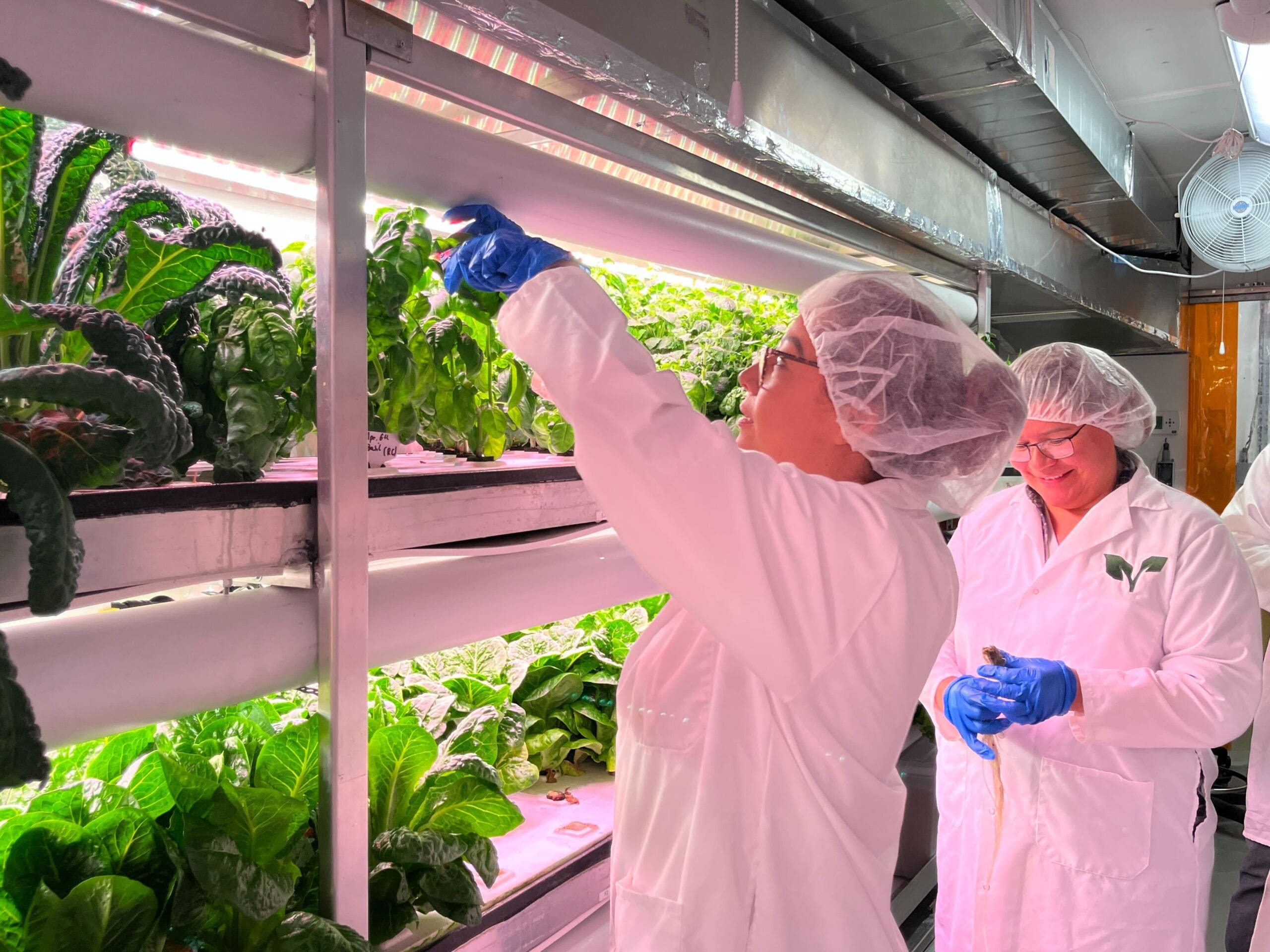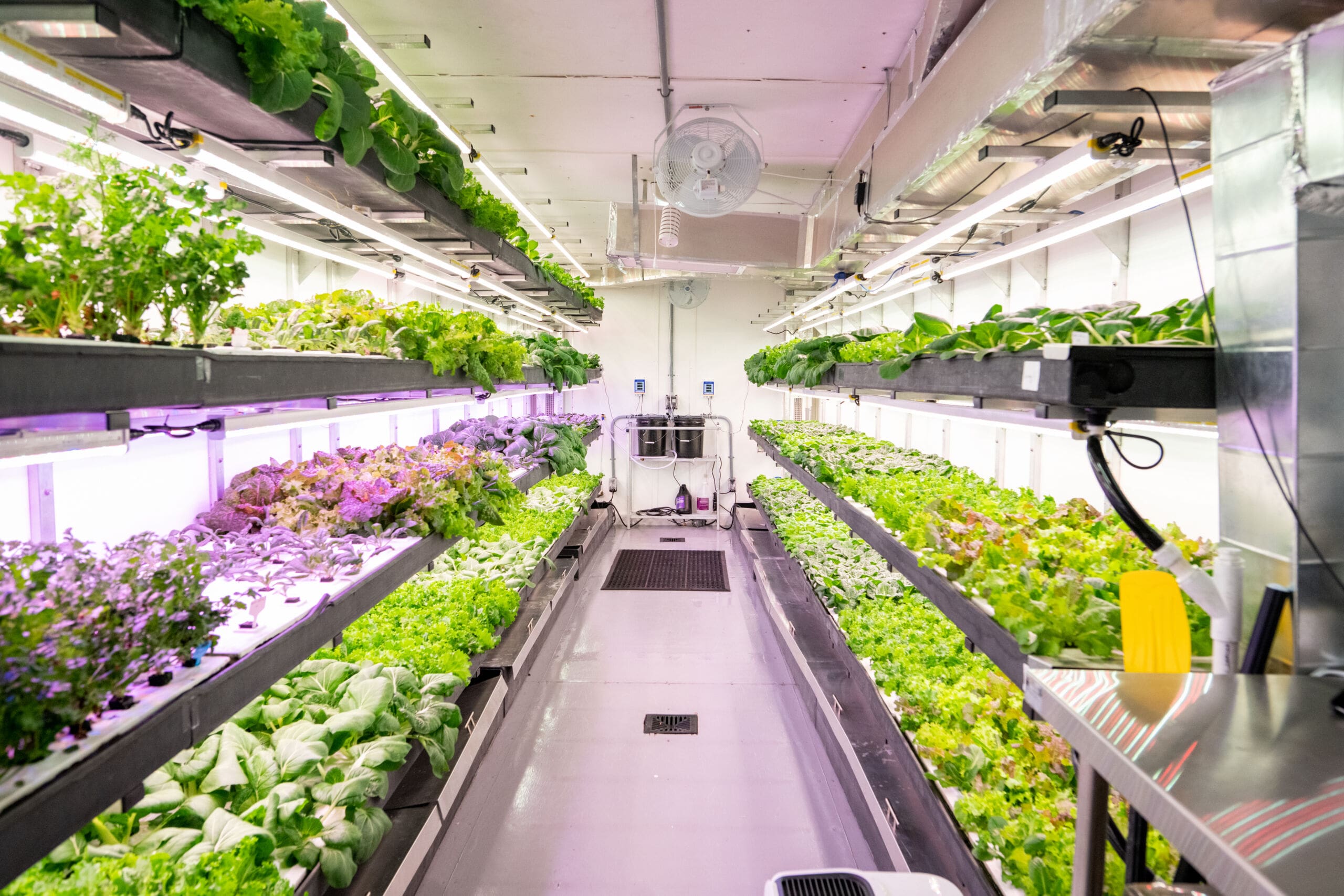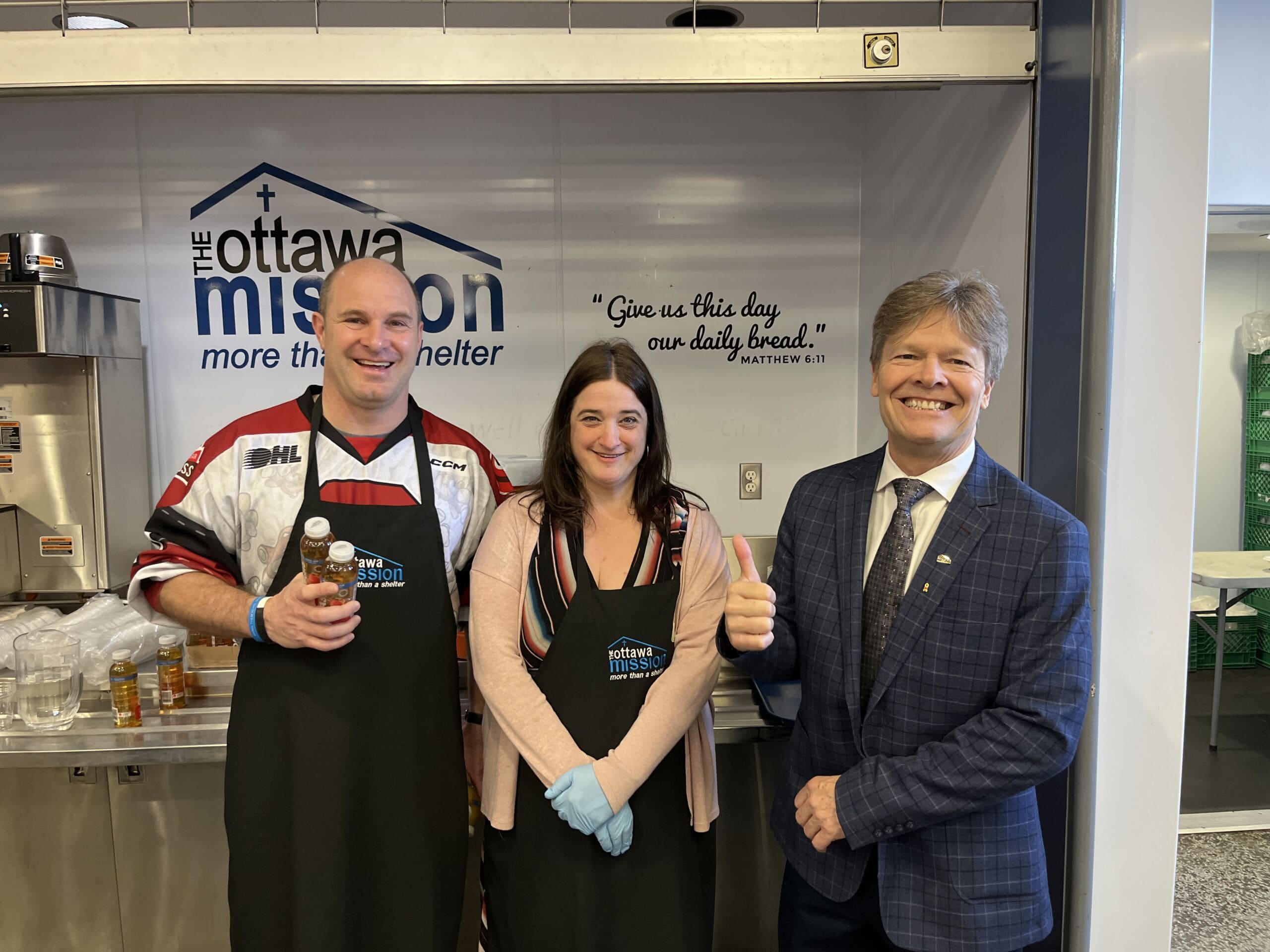Sowing solutions: An innovative approach to fighting food insecurity in Canada
Why It Matters
A powerful partnership between a local non-profit, a forward-thinking tech company, and a major financial institution is transforming the fight against food insecurity—offering not just meals, but a sustainable future for vulnerable communities.

This story was produced thanks to a partnership between Future of Good and RBC. RBC is proud to support a broad range of community initiatives through donations, community investments and employee volunteer activities. See how at rbc.com/peopleandplanet. See FOG’s editorial ethics and standards here.
Food insecurity is a growing challenge, but a solution is also growing.
For the Ottawa Mission, that solution means collaborating with a company in their own garden.
The non-profit began running a food truck program during the COVID-19 pandemic to provide free meals and groceries to isolated residents.
“This was right in the initial stages of the pandemic, where food bank programs were shut down in church basements and in community centres and seniors were afraid to go on buses,” said Peter Tilley, CEO of The Ottawa Mission.
Demand for delivered meals increased quickly.
“Within the first six months, five stops grew to 19 and by year two, we were at 38 stops,” he said. “City councillors and community centres and seniors would be calling us to say, ‘Could you stop here on Tuesday or Wednesday?’”
Five years later, the non-profit has purchased two new food trucks to continue the program, delivering more than 10,000 meals each week to 40 different neighbourhoods.
The success of the innovative program had Tilley wondering how to keep up with the growing demand for fresh food to distribute meals.
“This food truck program costs us $900,000 a year in operating costs, but we’re moving ahead with it because we can’t pull it away. People in those impoverished communities would go without food,” he said.
That’s when RBC stepped in to provide financial support.
Producing fresh food
RBC helped fund a forward-thinking solution with Ottawa-based company Growcer, designed to create long-term change by improving consistent access to fresh food.
Growcer builds modular farms, making it possible to grow fresh produce even in some of Canada’s most challenging climates. The company now has modular-sized farms in more than 125 Canadian communities.
“Five years ago, our business was exclusively in remote and Indigenous communities,” said Florent Schmahl, the chief of staff at Growcer.
“Sadly, food inflation in particular is now a problem. For us, it’s about working with organizations that already have an efficient and proven model to serve people coming from underprivileged backgrounds and communities.”
RBC provided a $1.5 million grant to Growcer to support Canadian communities and their access to fresh, nutritious food.
Some of the funding will support the Ottawa Mission, which will enable the non-profit to provide more sustainably produced food and grow its own food, as well as create training opportunities.
“RBC is a walk-the-talk organization when it comes to providing support to charities and to addressing issues of food insecurity,” said Tilley.
RBC, RBC Foundation®, and RBC Foundation USA made a $10-million global commitment to address food insecurity by funding solutions to improve accessibility, like the Ottawa Mission’s.
“For us to go to a board of directors and say yes in these challenging times, we’re recommending bringing on a new program that’s going to provide us with sustainability and capacity to do what we do. But there is a cost to that and to have RBC step forward and help remove some of that cost is huge,” said Tilley.
“Community support like that is huge for us. It gives us the confidence to move forward with projects.”

Leafy greens such as kale, spinach, lettuce and herbs will all be grown in the modular farm.
In the past, 90 per cent of the lettuce used at the Ottawa Mission came from the United States.
“The quality and price of those products was very volatile, making it very hard for them to predict their cost and their operating budget,” said Schmahl.
“The Ottawa Mission wanted to have a more secure procurement system in place for those very perishable foods that they served to their members.”
The innovative approach is something Food Banks Canada says is the path forward.
“Food banks are probably the most creative organizations that you’ll ever come across,” said Erin Filey-Wronecki, chief development and partnerships officer with Food Banks Canada.
“If you give a food bank a problem, they will find a solution. The challenge of course is that these problems that they’re facing are now much greater than they’ve ever been.”
According to Statistics Canada, one in four Canadians is food insecure. Another report by Food Banks Canada says that in March 2024, more than two million visits were recorded at Canadian food banks, a 90 per cent increase over five years.

Community investments from local foundations, such as RBC Foundation, represent the future of sustainable support, she said.
“With foundations like the RBC Foundation and other community investment partners, we can work together to build a country and system that makes sure that those who need help, get the help they need and to actually have fewer people needing that help.”
Farming for the future
Ottawa Mission’s modular farm also gives clients an opportunity to learn new skills.
“Being able to not only provide people with fresh, hyper-nutritious and high-quality greens, but also developing their skills and training, makes them employable in the farming sector,” said Schmahl.
Clients will help grow and harvest the vegetables.
“We are in crucial need for more farmers in Canada,” said Schmahl.
The RBC Foundation recently invested $8 million in sustainable farming, highlighting its support for the future of Canadian agriculture.
By 2033, 40 per cent of Canadian farmers will retire, marking a major turning point in the country’s agricultural workforce, according to an RBC report.
“Our average farmer is 57 years old in Canada, and very few of them have sufficient land,” said Schmahl.
“We need more people with farming skills so we can keep growing food for ourselves and for our communities,” Schmahl said.
RBC recently released a research report on the topic: Feeding the crisis: The tariff toll on food insecurity.

